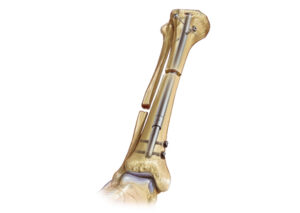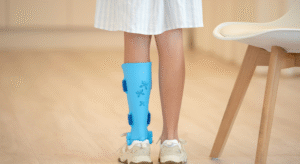Arthritis can make even the simplest tasks—like opening a jar or climbing the stairs—feel like a challenge. If you’ve been living with joint pain, you might be wondering whether surgery is the only way to get relief. The good news is that many people manage arthritis pain effectively without going under the knife. From lifestyle changes to targeted treatments, there are several options that can help you stay active and comfortable.
Arthritis and Its Impact
Arthritis isn’t just one condition, it’s a general term that covers various types of joint inflammation. The most common types include:
- Osteoarthritis (OA) – A wear-and-tear condition where cartilage breaks down over time.
- Rheumatoid arthritis (RA) – An autoimmune condition where the body attacks its own joints.
- Gout – A type of arthritis caused by a buildup of uric acid crystals in the joints.
Regardless of the type, arthritis often leads to stiffness, swelling, and pain, which can make everyday activities more difficult.
Non-Surgical Ways to Manage Arthritis Pain
Surgery can be a last resort for severe cases, but many people find relief through non-surgical methods. Here are some approaches to consider:
1. Stay Active (But Choose the Right Exercises)
Exercise might be the last thing you feel like doing when your joints ache, but staying active is one of the best ways to manage arthritis. Low-impact activities like swimming, cycling, and walking help keep your joints moving without putting too much stress on them. Strengthening the muscles around your joints also provides better support and reduces strain.
2. Watch Your Weight
Carrying extra weight puts added pressure on your joints, especially the knees, hips, and lower back. Even losing a small amount of weight can make a noticeable difference in reducing pain and improving mobility.
3. Try Physiotherapy
A physiotherapist can guide you through exercises designed to improve flexibility and strengthen the muscles around your joints. They may also use techniques like ultrasound therapy, heat and cold therapy, or manual therapy to ease discomfort.
4. Medication and Supplements
There are several medications that can help manage arthritis pain, including:
- Pain relievers – Paracetamol and nonsteroidal anti-inflammatory drugs (NSAIDs) like ibuprofen.
- Topical treatments – Gels and creams with anti-inflammatory ingredients.
- Joint supplements – Some people find relief with glucosamine, chondroitin, or omega-3 fatty acids, though results vary.
Always check with a healthcare professional before starting new medications or supplements.
5. Lifestyle Adjustments and Joint Protection
Small changes in how you move and carry out daily tasks can help protect your joints. For example:
- Use assistive devices like braces, splints, or walking aids if needed.
- Opt for ergonomic tools and furniture to reduce strain.
- Modify activities—if high-impact sports worsen your pain, try alternatives like yoga or pilates.
6. Alternative Therapies
Some people find relief with complementary therapies such as:
- Acupuncture – May help with pain relief by stimulating nerves and increasing blood flow.
- Massage therapy – Can help ease muscle tension around affected joints.
- Mind-body approaches – Practices like tai chi and meditation may help manage pain by reducing stress and improving body awareness.
When to Consider Surgery
Non-surgical treatments work well for many people, but if arthritis pain is significantly limiting your mobility and affecting your quality of life, surgery might be worth considering. Joint replacement or other surgical procedures can provide long-term relief, but they are usually recommended only when other treatments haven’t worked.
Take Control of Your Arthritis Pain – Book a Consultation at Advanced Orthopaedics
Living with arthritis doesn’t mean you have to live with constant pain. With the right approach, you can manage symptoms, stay active, and maintain your quality of life without surgery.
At Advanced Orthopaedics, we offer personalised treatment plans to help you find relief in the way that works best for you. Whether it’s physiotherapy, medication management, or lifestyle advice, our team is here to support you.











